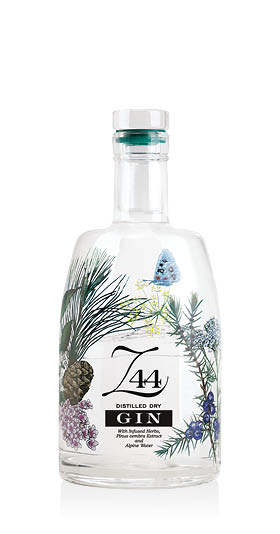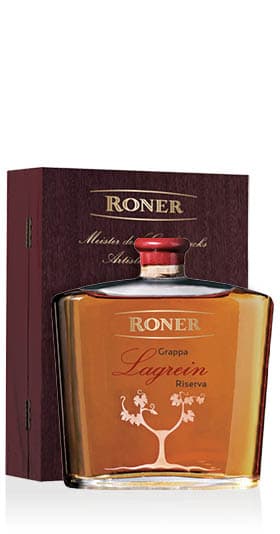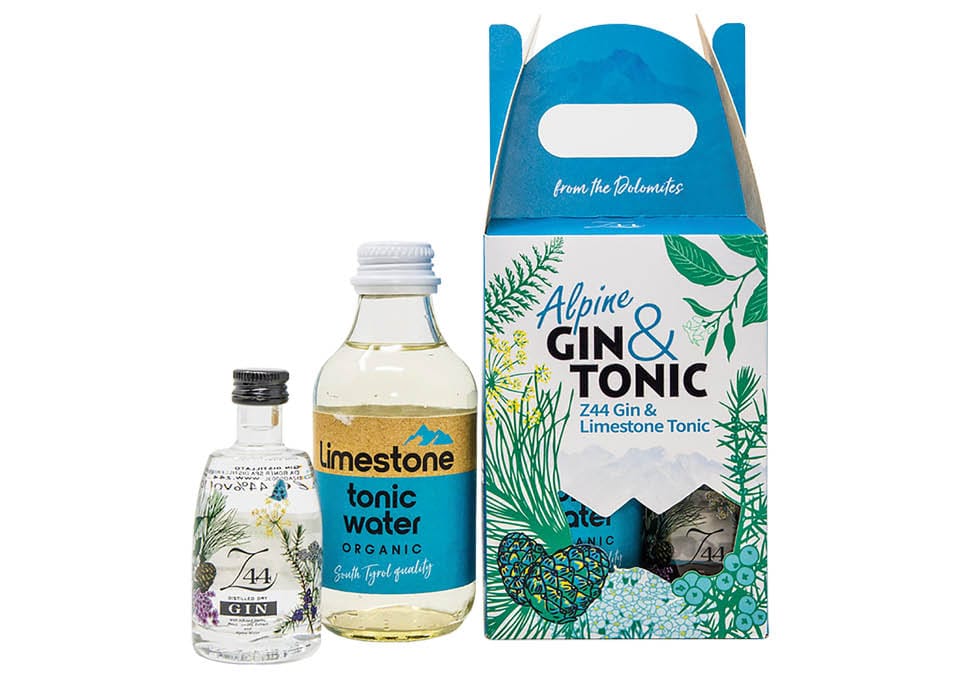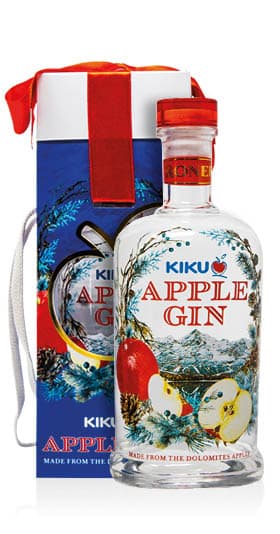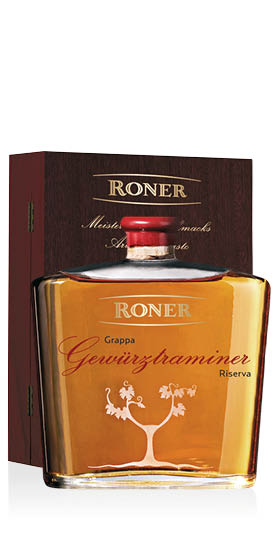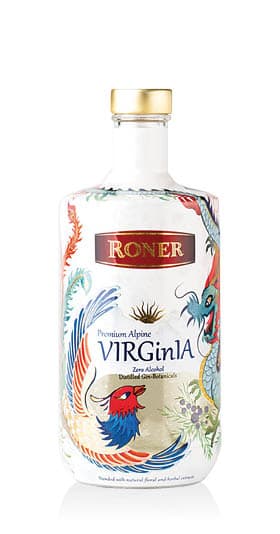Roner
Distillerie Roner was born in 1946, when Gottfried Roner, passionate about distillation, began to produce grappa, distilling at home, according to the alpine peasant tradition. Soon, he thought of associating the production of grappa with that of macerated liqueurs with roots and berries from the woods of his land, giving rise to the famous Gentian, Juniper and Blueberry liqueurs of the Roner Distilleries. Since the 1960s, Gottfried Roner's sons Andreas and Guenther Roner have taken over the reins of the company, who in the wake of their father have continued to believe in the Roner philosophy and to support the growth of the company. Since 2007, Karin Roner has been added to the leadership of the Roner Distilleries, tackling daily challenges with an energetic and innovative perspective. In 2010, Distillerie Roner received the Distiller of the Year award. Distillation is an ancient art, which originated around 500 BC in Mesopotamia. It began to be actively practiced from 150 BC by the Greek alchemists, with the aim of separating the elements. At that time, distillation was still an alchemical art, halfway between science and magic. The evolution of distillation took place thanks to the contribution of the monastic orders, who distilled to obtain medicinal essences, liqueurs and bitters. Today, after all, the idea behind distillation has not changed: fruit and pomace are distilled with the aim of extracting aromatic essences and flavors. The distillation process of the Roner Distilleries is characterized by a series of essential phases to guarantee a first level result: quality control of the raw material; the preparation of the must or puree; controlled fermentation; continuous and discontinuous distillation; stabilization; aging and filtration.
The protagonist of the distillation is the alembic, an instrument of Arab origins perfected over the centuries, with which it is possible to produce a distillate following the continuous or discontinuous distillation technique. Discontinuous distillation requires that the stills are completely emptied at each distillation cycle; continuous distillation requires the pomace or puree to be loaded constantly, without stopping the distillation process. Roner is famous for the production of Grappa, Fruit Distillates and Liqueurs. Discover the entire Roner Distillery range on Vino.com.
Grappa Roner
Grappa Roner is a distillate that can only be produced in Italy and from Italian pomace. On Vino.com you will find a wide selection of Grappa Roner. There are different types: young, aged (if it has been subjected to aging in barriques), single-variety (if it was obtained from the distillation of the pomace of a single grape variety) and from mixed pomace (if it was obtained from the distillation of mixed pomace). Choose the right Grappa Roner for you on Vino.com.
What characterizes the Roner Pear Distillate?
Roner Pear Distillate is a distillate obtained from Williams pears. It is aged for one year in stainless steel containers. It is characterized by fruity notes, with prevailing hints of ripe pear. It has a sweet taste and is perfect to combine with Gorgonzola or at the end of a meal.
What characterizes the Roner Barricade Grappa?
The Roner Barricata Grappa is a grappa that has been subjected to aging in French oak barriques, that is to say in small barrels, with a capacity between 225 liters and 228 liters.
What is the price of Grappa Roner?
The price of Grappa Roner varies according to the type: young, aged, reserve, single-variety or obtained from mixed pomace. In fact, the pomace used for distillation, as well as the greater or lesser refinement of the Roner Grappa, affect the aromas, aromas and flavors of the Grappa, increasing the final value of the distillate. To find out more, discover the selection of Grappa Roner available on Vino.com.



